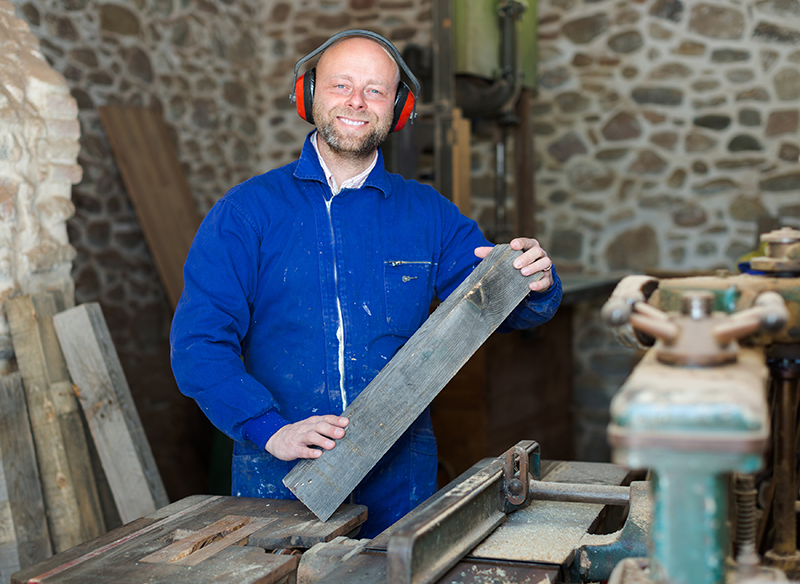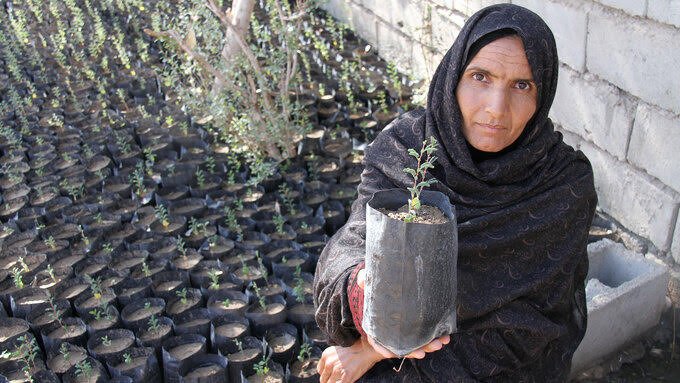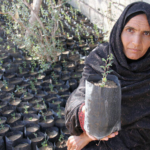New research may be able to pump up the potency when antibiotics become resistant: A new antibiotic that works by disrupting two different cellular targets would make it 100 million times more difficult for bacteria to evolve resistance, according to new research from the University of Illinois Chicago.
The post Have scientists found a way to make antibiotics resistance-proof? appeared first on Green Prophet.
Amidst the picturesque desert landscapes of Rigan in Iran, one community is witnessing a remarkable revival of its culinary tradition while upholding environmental sustainability.
Such a transformation is the fruit of the Rehabilitation of Forest Landscapes and Degraded Lands (RFLDL) project, an initiative led by the United Nations (FAO) and funded by the Global Environment Facility (GEF).
The project has become a catalyst for economic empowerment and environmental conservation in Rigan, with local communities and rural women at its core.
Known for its cultivation of dates, citrus, sesame and henna, Rigan nonetheless faces a significant threat from desertification. Characterized by its expansive plains and towering mountains, Rigan experiences temperatures that can soar above 50 degrees Celsius during the peak of summer. The area is dotted with date palms and citrus orchards that thrive in its more tropical zones. See how Lake Urmia in Iran has dried up due to human mismanagement.
Land degradation and biodiversity loss is common in Iran, primarily due to unsustainable agricultural practices and deforestation. These issues are compounded by overgrazing, excessive harvests of forest products and the relentless movement of sands, all of which exacerbate wind erosion and diminish the efficacy of watershed ecosystems.
FAO distributed 750 gas ovens drastically cutting down deforestation while helping increase the production of the traditional Komaj bread, transforming it from a household staple to a source of income. ©FAO/Mehdi Ansari Jovini
Communities have traditionally depended on wood and shrubs for fuel for their mud ovens, a practice that further led to deforestation and environmental degradation.
As one of its responses, the UN project distributed 750 gas ovens and 500 wood-efficient stoves, especially when compared to mud stoves, cutting down deforestation while helping the revival of the traditional Komaj bread making.
Komaj bread, a delicacy infused with the sweetness of dates and aromatic cardamom, complemented by the earthy tones of cumin—a staple spice of the region—is at the heart of this revival.
The switch to gas furnaces has enabled the women of Rigan to increase the production of Komaj bread, transforming it from a household staple to a source of income. This shift not only preserves a treasured culinary tradition but also provides new economic prospects for the community’s women, who can sell their product at the local markets, further contributing to their economic resilience.
Together with implementing activities, such as planting organic windbreakers, constructing watershed management structures and setting up sediment traps, the reduced necessity of clearing trees and bushes for fuel improved the status of dryland forests and range and decreased the severity of wind erosion on almost 75,000 hectares of land in both Rigan and South Khorasan.
In Rigan, in particular, the project supported villages to restore 2,250 hectares of farm and rangeland by growing drought- and saline- resistant plants. 1,650 of these hectares were planted with species that can be safely irrigated by wastewater.
In an effort to diversify income sources away from solely forest products, the project encouraged the cultivation of alfalfa, date trees and medicinal plants, as well as the breeding of turkeys. Additionally, it supported a range of craft and artisan skills such as needlework, sewing, handicrafts and the spinning of palm fibres.
In Israel people like Yossi Oud are starting such projects which help Muslim women start small craft businesses by beekeeping.
The post Reforestation in Iran revives traditional food and creates jobs appeared first on Green Prophet.
Recommended Story For You :

Bringing Dead Batteries Back To Life Is Simple!

SEPTIFIX to the Rescue! Say Goodbye to Problems and Hello to Savings

Ecomposing of Paper Towels Produce Methane Gas

A Leading Cause Of Global Warming!

A cleaner world where energy is abundant essentially free

and sourced directly out of the inherent power of the space surrounding us.

MIT Discovery can cut power bills by 65%

Easy DIY Power Plan Will Change Our World Forever

Discover the World with Our Passionate Geography Teacher in Memphis!




